Julian Alfredo Mendez
Specification, Application, and Operationalization of a Metamodel of Fairness
Nov 14, 2025Abstract:This paper presents the AR fairness metamodel, aimed at formally representing, analyzing, and comparing fairness scenarios. The metamodel provides an abstract representation of fairness, enabling the formal definition of fairness notions. We instantiate the metamodel through several examples, with a particular focus on comparing the notions of equity and equality. We use the Tiles framework, which offers modular components that can be interconnected to represent various definitions of fairness. Its primary objective is to support the operationalization of AR-based fairness definitions in a range of scenarios, providing a robust method for defining, comparing, and evaluating fairness. Tiles has an open-source implementation for fairness modeling and evaluation.
Can Proof Assistants Verify Multi-Agent Systems?
Mar 10, 2025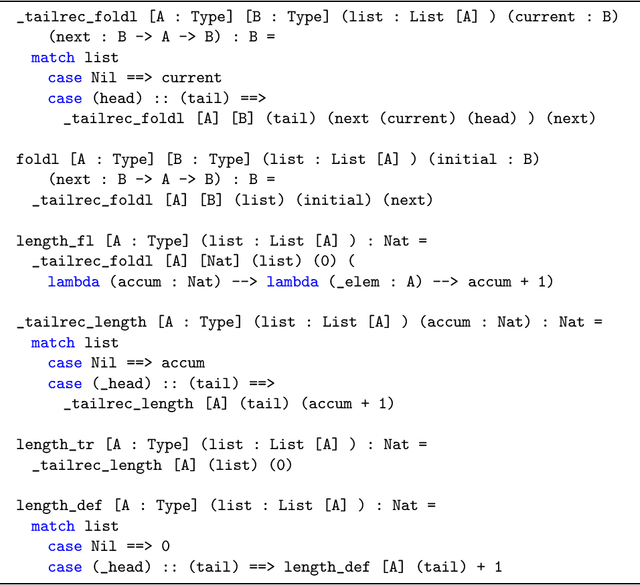

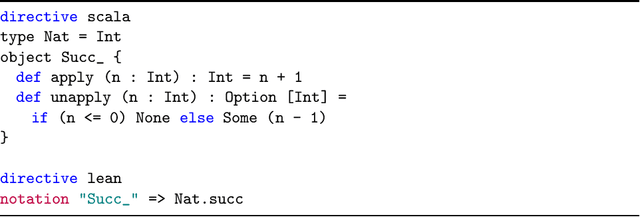

Abstract:This paper presents the Soda language for verifying multi-agent systems. Soda is a high-level functional and object-oriented language that supports the compilation of its code not only to Scala, a strongly statically typed high-level programming language, but also to Lean, a proof assistant and programming language. Given these capabilities, Soda can implement multi-agent systems, or parts thereof, that can then be integrated into a mainstream software ecosystem on the one hand and formally verified with state-of-the-art tools on the other hand. We provide a brief and informal introduction to Soda and the aforementioned interoperability capabilities, as well as a simple demonstration of how interaction protocols can be designed and verified with Soda. In the course of the demonstration, we highlight challenges with respect to real-world applicability.
Soda: An Object-Oriented Functional Language for Specifying Human-Centered Problems
Oct 03, 2023
Abstract:We present Soda (Symbolic Objective Descriptive Analysis), a language that helps to treat qualities and quantities in a natural way and greatly simplifies the task of checking their correctness. We present key properties for the language motivated by the design of a descriptive language to encode complex requirements on computer systems, and we explain how these key properties must be addressed to model these requirements with simple definitions. We give an overview of a tool that helps to describe problems in an easy way that we consider more transparent and less error-prone.
ACROCPoLis: A Descriptive Framework for Making Sense of Fairness
Apr 19, 2023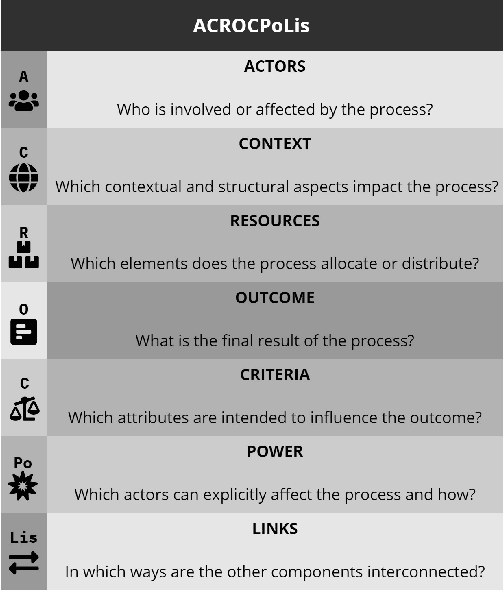
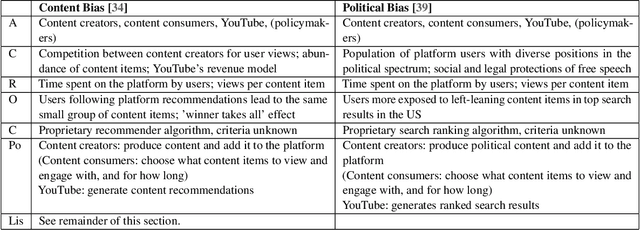
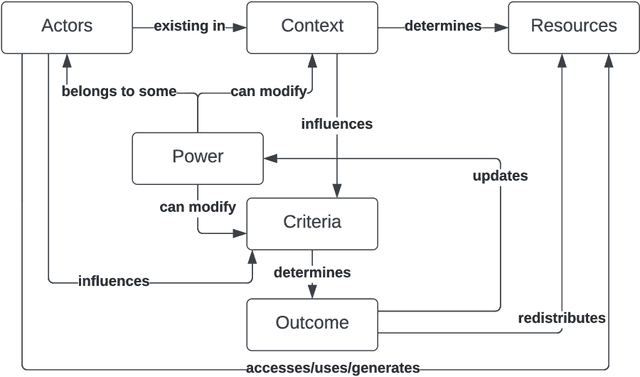
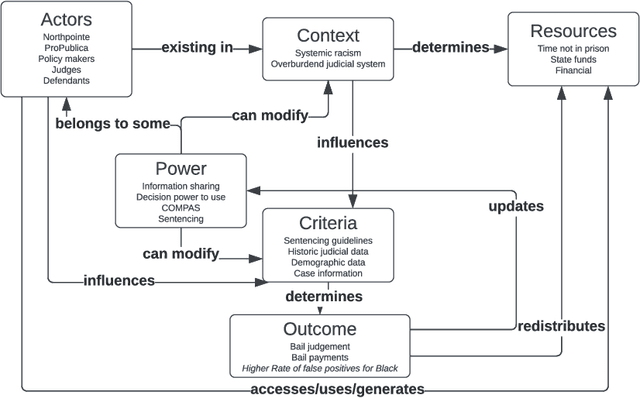
Abstract:Fairness is central to the ethical and responsible development and use of AI systems, with a large number of frameworks and formal notions of algorithmic fairness being available. However, many of the fairness solutions proposed revolve around technical considerations and not the needs of and consequences for the most impacted communities. We therefore want to take the focus away from definitions and allow for the inclusion of societal and relational aspects to represent how the effects of AI systems impact and are experienced by individuals and social groups. In this paper, we do this by means of proposing the ACROCPoLis framework to represent allocation processes with a modeling emphasis on fairness aspects. The framework provides a shared vocabulary in which the factors relevant to fairness assessments for different situations and procedures are made explicit, as well as their interrelationships. This enables us to compare analogous situations, to highlight the differences in dissimilar situations, and to capture differing interpretations of the same situation by different stakeholders.
 Add to Chrome
Add to Chrome Add to Firefox
Add to Firefox Add to Edge
Add to Edge